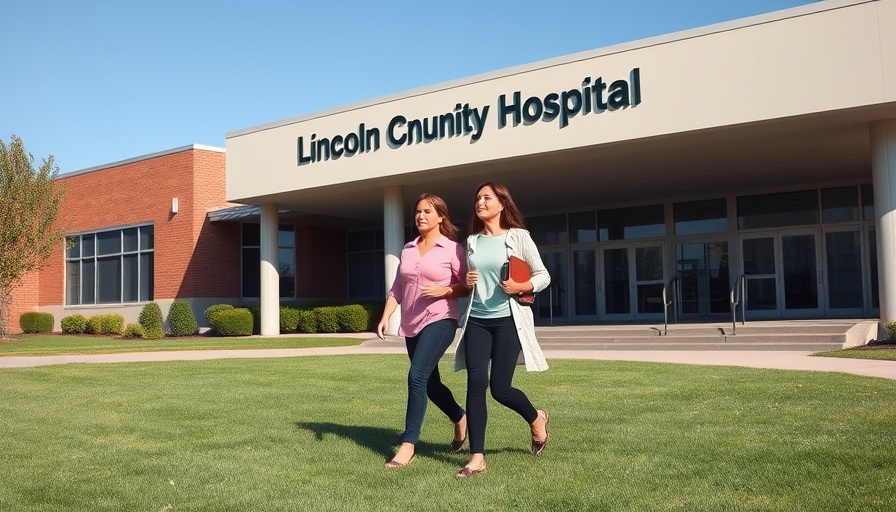
Provider Taxes: A Lifeline for Rural Hospitals
In an age where healthcare systems are under duress, particularly in rural areas, provider taxes have emerged as a critical economic support for hospitals like Lincoln Health in Colorado. These special taxes collected from hospitals not only assist local health facilities by increasing their Medicaid funding but also ensure that uninsured patients receive necessary medical care. Lincoln Health's CEO, Kevin Stansbury, described how the $500,000 in taxes yielded over $3.6 million in Medicaid funding, underscoring the importance of this financial model in maintaining operation and continuance of patient care.
Political Maneuvers: Cuts to Provider Taxes on the Horizon?
Amidst political discussions surrounding government spending and tax cuts, provider taxes are being scrutinized. Republican lawmakers are advocating for cuts in Medicaid to subsidize extensions of previous tax reductions, framing provider taxes as wasteful. This adversarial stance could jeopardize essential funding for healthcare systems across the nation, inevitably placing healthcare accessibility at risk. The Congressional Budget Office highlights that abolishing these taxes could result in substantial federal savings, but at what cost to patient care?
The Bigger Picture: The Impact of Cuts on Rural Health Care
If provider taxes are curtailed or eliminated, the ramifications could be severe for small hospitals in America. Many rely on this funding to survive operational costs and provide necessary services to vulnerable populations. With headlines buzzing about fiscal responsibility, it is critical to consider how these cuts will ultimately deepen healthcare disparities, especially in underserved regions. Rural hospitals play a vital role in community health, and their financial struggles represent a broader crisis in the American healthcare landscape, one that could worsen should provider taxes face cuts.
Future Implications: What’s Next for Medicaid?
The ongoing discussions surrounding Medicaid funding and provider taxes could set the precedent for how healthcare is financed in the future. As states grapple with balancing budgets while attempting to expand Medicaid coverage, the fate of provider taxes hangs in the balance. Keeping an eye on legislative developments will be crucial for health enthusiasts and advocates who understand the interplay between policy and patient care.
As health enthusiasts, it’s vital to engage with these discussions. Staying informed about how financial decisions impact health access can empower individuals to advocate for systemic change in healthcare policy.
 Add Row
Add Row  Add
Add 




 Add Row
Add Row  Add
Add 



Write A Comment